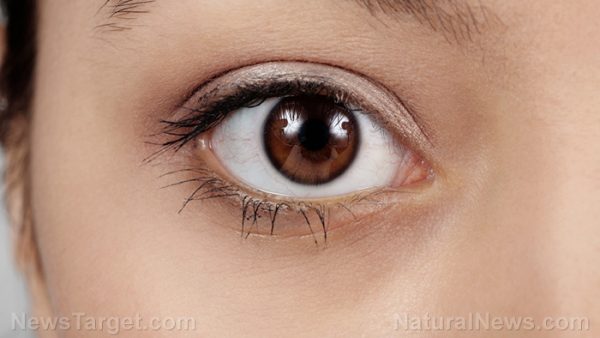
Iridology proven to have scientific basis? Retinal scan could become early detection system for Alzheimer’s disease
Thursday, December 28, 2017 by Isabelle Z.
http://www.realsciencenews.com/2017-12-28-iridology-proven-to-have-scientific-basis-retinal-scan-could-become-early-detection-system-for-alzheimers-disease.html

Alzheimer’s disease has been the subject of much research in recent times, as the rate at which this devastating disease affects our growing elderly population skyrockets, but it remains largely mysterious to scientists. For all the studies showing how eating the right foods can help prevent the illness, there are still a lot of questions surrounding its exact mechanisms.
One of the biggest challenges for researchers, patients and doctors alike has been how tricky it is to detect the illness in its early stages. By the time the traditional symptoms become obvious, the patient is usually well within the grasp of Alzheimer’s.
For several decades, the only way the condition could be officially diagnosed was by analyzing the patients’ brains after they died. PET scans of the brains of living patients have been used as evidence of the disease in recent years, but these patients must be injected with radioactive tracers and the tests are invasive and expensive, which makes them hard to carry out in every suspected case, and even more difficult to repeat to measure disease progression.
All that could be about to change thanks to a new early detection system that is being developed by neuroscience investigators at Cedars-Sinai. The researchers there discovered that Alzheimer’s disease has an impact on the retina in the back of the eye that is similar to its effects on the brain. They then took this one step further to reveal that a non-invasive scan of the eye can detect signs of the illness years before the sufferer ever experiences a symptom.
Early detection could make a big difference
The high-definition eye scan that was developed for the study could detect amyloid-beta deposits, which are buildups of toxic proteins that are a hallmark of the disease. Now affecting more than 5 million Americans – with numbers expected to triple by the year 2050 – the finding could have a huge impact on helping find people at high risk of the disease so that they can take preventive action.
The study’s senior lead author, Dr. Maya Koronyo-Hamaoui, pointed out that this method is not only reliable, but is also easy to repeat, thanks to its noninvasive nature. This means that patients can be monitored and their progression can be easily tracked.
On top of that, study first author, Yosef Koronyo, said the study also discovered amyloid plaques in peripheral areas of the retina that were previously overlooked, and these amounts corresponded to the amount of plaque found in certain areas of the brain.
Cedars-Sinai Department of Neurosurgery Chair Dr. Keith L. Black said, “Our hope is that eventually the investigational eye scan will be used as a screening device to detect the disease early enough to intervene and change the course of the disorder with medications and lifestyle changes.”
In the study, 16 Alzheimer’s patients drank a solution containing curcumin, the same natural component that makes turmeric so beneficial for health. The curcumin made the retina’s amyloid plaques essentially “light up” in the scan, allowing them to be easily detected and then compared to those of cognitively normal people.
The report, which was entitled “Retinal amyloid pathology and proof-of-concept imaging trial in Alzheimer’s disease,” was published in the journal JCI Insight.
Similar eye tests being developed by other scientists
A similar eye test is being developed by scientists at the University of Minnesota, who found differences in the reflection of light patterns off mice retinas that changed as they developed the illness. The team built a special spectral imaging system using a machine-vision camera, in conjunction with a tunable wavelength device, to measure the light reflections coming off the retinas to determine the buildup of amyloids in the retina, and by extension, the brain.
Could findings like these be the big break in Alzheimer’s research we’ve been hoping for?
Sources include:
Tagged Under: Tags: Alzheimer's diagnosis, Alzheimer's disease, Alzheimer's tests, amyloid plaques, discoveries, early detection, eye test, future tech, goodhealth, goodmedicine, goodscience, iridology, research, retina scan





